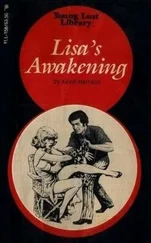Kevin Guilfoile - Cast Of Shadows
Здесь есть возможность читать онлайн «Kevin Guilfoile - Cast Of Shadows» весь текст электронной книги совершенно бесплатно (целиком полную версию без сокращений). В некоторых случаях можно слушать аудио, скачать через торрент в формате fb2 и присутствует краткое содержание. Жанр: Триллер, на английском языке. Описание произведения, (предисловие) а так же отзывы посетителей доступны на портале библиотеки ЛибКат.
- Название:Cast Of Shadows
- Автор:
- Жанр:
- Год:неизвестен
- ISBN:нет данных
- Рейтинг книги:4 / 5. Голосов: 1
-
Избранное:Добавить в избранное
- Отзывы:
-
Ваша оценка:
- 80
- 1
- 2
- 3
- 4
- 5
Cast Of Shadows: краткое содержание, описание и аннотация
Предлагаем к чтению аннотацию, описание, краткое содержание или предисловие (зависит от того, что написал сам автор книги «Cast Of Shadows»). Если вы не нашли необходимую информацию о книге — напишите в комментариях, мы постараемся отыскать её.
Cast Of Shadows — читать онлайн бесплатно полную книгу (весь текст) целиком
Ниже представлен текст книги, разбитый по страницам. Система сохранения места последней прочитанной страницы, позволяет с удобством читать онлайн бесплатно книгу «Cast Of Shadows», без необходимости каждый раз заново искать на чём Вы остановились. Поставьте закладку, и сможете в любой момент перейти на страницу, на которой закончили чтение.
Интервал:
Закладка:
“I don’t know any more than you do,” Davis said, not wanting to prejudice her with his doubts.
“He looks like Justin, I’ll admit.”
Davis recalled both a recent photograph of Spears and a printout of the composite, and his eyes drifted up and to the left while his mind compared them. “It’s so hard to know.”
Brixton Elementary (constructed, appropriately, of red brick) sat at the end of Clifton Street, separated from the high school by a cinder running track and a field shared by freshly painted football uprights and soccer goals with chain nets. A pair of five-tiered bleachers sat parallel to one sideline.
There was no designation for faculty or guest parking, so they left the Taurus in a space next to an aging but clean Honda Civic, and made their way to the principal’s office, according to a plan they’d formulated shortly after buying plane tickets.
“Hi.” Joan smiled at the receptionist, who operated an enormous old phone with square plastic buttons representing each line in and out: some labeled with the appropriate number; some lit white, some not; all depressed only with great effort from a locked finger. “My husband and I are considering a move to this area and were wondering if we couldn’t take a quick look around the school.” Davis noticed an involuntary shiver along his arms and back when he heard Joan refer to him as “my husband.”
“Oh, wonderful,” she said. “Welcome to town – that is, if you decide to move here. Where do you live now?”
“Saint Louis,” Davis interrupted, unsure if he and Joan had covered that beforehand, although he was certain as soon as he said it that Joan would have been capable of a good or better lie. On second thought, it might have been better to have just said Chicago. It might have helped them keep their stories straight.
“Well, I wish you had called ahead so we could have arranged for a formal tour.” As the receptionist looked about the room – for what, it was difficult to say – the door behind her opened and another woman emerged, younger and more sternly dressed, in a tan suit with a paisley scarf covering her neck and clavicle, and her hair piled and styled in a knot above her head.
“Hello,” she said.
“Mary” – the receptionist stood now – “these are the Deavers. They were hoping to get a tour of the school, but they don’t have an appointment.”
“Lovely,” Mary said. “I’m the principal, Mary Ann Mankoff.”
They introduced themselves again as Greg and Susan Deaver. “We won’t get in the way. We just wanted to walk around the school, if that’s okay.”
“I’ll take you around,” Principal Mankoff said. “It won’t take a few minutes, as you can see.”
“We hate to bother you,” Davis said. Truthfully, they hoped to explore on their own.
“Not a bother,” she said. “Alice, we’ll be back in fifteen.”
Up and down the two parallel hallways, Mary Mankoff quizzed Davis and Joan on their fictional biographies. They had a son who was seven, and they were doctors who were hoping to set up a general practice here in the country.
“Really? Well, out here in the country, you can never say no to a couple of new doctors.”
Joan tried to get the principal in the rhythm of answering questions instead of asking them, and Davis thought Joan sounded appropriately curious about such things as Iowa tests and the percentage of graduates from the high school that go on to university. Principal Mankoff even took them briefly into a classroom, opening the door quietly to a few tiny turning heads. She gave an apologetic wave to the teacher, who returned it with a curious but understanding nod.
Principal Mankoff counted off statistics on her hand – rank in the state, reading scores, ACT averages from the high school – and as they approached the office again, Davis wondered if he’d have to ask specifically, when they stopped at a narrow hall he hadn’t noticed.
“Let me just show you the library,” Mary Ann said. “We’re quite proud of it.”
The room was, indeed, large for a grade school, with books arranged across shelves along every wall, and also on four freestanding stacks that filled up one half. On the other side, fifteen or so children sat on tiny rectangles of carpet as the librarian read them a story about teenaged detectives foiling a smuggling plot. Mary Ann whispered that a locally famous author had donated the library. “He built one for the high school as well,” she said.
They stood for another moment as Davis and Joan pretended to marvel at the built-in shelving and brass plaques counting off the Dewey Decimals. Joan nudged Davis when her eye caught something in one of the stacks. She pointed and he saw it, too: a sign that read : BRIXTON SCHOOL ARCHIVES.
Another teacher, a woman who, Davis presumed, was responsible for these children the other seven periods of the day, tugged at Mary Ann’s elbow. “Can I talk to you a second, Mary? About the assembly Friday?” Mary Ann excused herself and she and the teacher left through the narrow door to the hall.
Davis and Joan walked over to the archive shelves, and Joan quickly skimmed with her eyes and fingers the years on dozens of leather scrapbooks. Davis did the math in his head – Justin’s age today, Jimmy Spears’s date of birth – adding and subtracting from the current year in adjacent columns.
“There. That one. First grade.”
Joan spread the blue volume across the flannel-skirted lap she had forged sitting on her heels and flipped through the acid-free pages as Davis stooped behind her. Each page held, in pasted photo corners, a pair of class pictures, the students divided up by teacher. Unlike the class photos Davis remembered from his own school days, the children were not lined up on expandable bleachers, with short kids segregated on the gym floor. Instead, each class was represented by twenty individual head shots, with a similar picture of the teacher. Underneath each class was a typed listing of the students by row, cut out with scissors and taped to the page (carelessly, with yellowing Scotch tape), and Joan and Davis scanned the years and names together. She spotted it first:
Preston, P.; Spears, J.; Thoms, L.; Yaley, L…
“There.” She pointed.
Davis looked at the photo. He checked the name. He looked at Joan. She shrugged. Young Jimmy looked nothing like seven-year-old Justin.
“Sorry for leaving you like that.” Principal Mankow stood over them. “I see you found our school history. That’s Jimmy Spears. There. Second from left. The football player.”
“Very interesting,” Davis said.
“You must be proud of him,” Joan said.
“We all are,” Principal Mankow said.
A half hour later, at a restaurant called, with extreme lack of irony, the Brixton Diner, Davis and Joan took opposite sides of a window booth, sliding themselves across benches made from nearly equal amounts of old red vinyl and blue vinyl patches. Weiss was to meet them here at 1 p.m., which was now.
The door frame was crowned by a bracket with a bell, and Joan and Davis, the only customers for the time being despite the lunch hour, turned together toward its tinny chimes. The man who entered was very short, with most of that lack of height in legs rather than torso, cursing him with a bit of a waddle. He was also hairy in undesirable places – up from his collar and out from his cuffs – but less so on the top of his pink and freckled head, seen through the thin mesh of his baseball cap.
“Hello, Judge Forak?” Rick Weiss said, shaking hands.
Joan squinted curiously at Davis but didn’t say anything.
“Hello,” Davis said.
He took a seat next to Davis. “What did you find out? Should I notify my banker to expect a deposit?” He said it with a derisive snort that suggested to Davis that Weiss didn’t have a bank, much less a banker.
Читать дальшеИнтервал:
Закладка:
Похожие книги на «Cast Of Shadows»
Представляем Вашему вниманию похожие книги на «Cast Of Shadows» списком для выбора. Мы отобрали схожую по названию и смыслу литературу в надежде предоставить читателям больше вариантов отыскать новые, интересные, ещё непрочитанные произведения.
Обсуждение, отзывы о книге «Cast Of Shadows» и просто собственные мнения читателей. Оставьте ваши комментарии, напишите, что Вы думаете о произведении, его смысле или главных героях. Укажите что конкретно понравилось, а что нет, и почему Вы так считаете.












